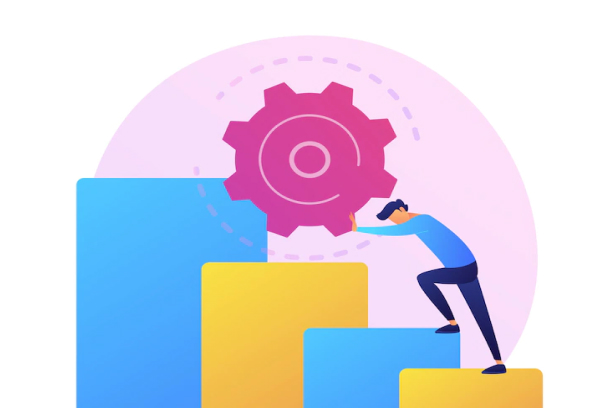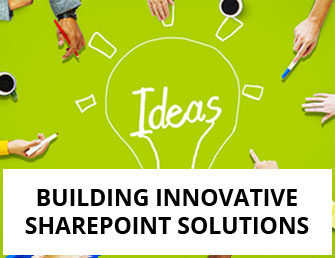Most IT Ops and DevOps teams integrate DevOps practices into their workflows and DNAs. That way, these teams help evolve into more innovative and faster versions of themselves. Most businesses today feel the pressure of embracing DevOps practices because of their competition. But the fact is that progress is born from the ability to face challenges head-on. If your business is on the fence about investing in DevOps transformation, then it must, regardless of the challenges. Here, we will explain different challenges that businesses are likely to face while embracing DevOps and how to overcome them.
The DevOps Challenges Explained
Breaking The Dev Vs. Ops Mentality
In most enterprises, the culture dictates that a development team will toss the code to a centralized operations team. In this model, the developers pull out all the stops to innovate and make new changes at speed while the operations team maintains high service levels. That is why the objectives of these two groups often run counter to one another. And whenever that happens, friction points are created. These frictions, in turn, result in complicated handovers, rising costs, and lengthy feedback loops.
IT enterprises that embrace the DevOps culture break down the siloes and enable the development and operations teams to collaborate together. The DevOps journey, however, begins with setting out a clear vision of how this practice will work for your business. For example, a robust DevOps model will always demarcate where the development team should stop and the operations team should spring into action. Besides, a good DevOps model will always find out innovative ways for integrating the development and operations teams together. If a business builds and deploys such a model, it will overcome the roadblocks that companies usually face when they are beginning their DevOps journeys.
Disseminating Clarity About Continuous Delivery Practices
Now, your business knows the importance of delivering the code continually for minimizing feedback loops. Even your engineers have started deploying pipelines and leveraging continuous integration (CI) tooling. After all, they are the only tools that will help your business unlock a culture of continuous delivery (CD). But, now, you have to ask yourself a million-dollar question. Do the feature teams in your business understand what it means to deliver software or any digital product continuously inside a predefined environment at a great velocity? The fact is that many businesses have their own set of definitions of what CD means. For most businesses that truly understand and embrace DevOps, though, CD includes a set of processes.
When a business follows these processes, it will roll out new software changes reliably and sustainably. These changes generally everything from new features and updates to bug fixes and more. Besides, embracing CD also means that your development team’s changes must never put a dent in the main project; that is, the project should always be in a deployable state. That way, your teams will verify whether your project is in a clean, workable state before they begin deploying it to the production ecosystem. That is why having a clear definition of CD is important. When all the stakeholders know what CD means, they will establish a common understanding of this process’s goals. Resultantly, a clear understanding of CD will help businesses form a roadmap for achieving the established goals without hampering the project’s stability.
Migrating From Legacy Architectures To Microservices
Maintaining older architectures and infrastructures with complicated technology stacks can be challenging, even if they have served your business for years. Moreover, thinking of maintaining the status quo can also pave the way for multiple stability problems, increasing operational costs, and lack of support. The result? Your business will be overpowered by its competition. However, when you use Infrastructure as Code along with microservices, you take a strong step toward creating a culture of continuous innovation.
That way, your development and operations teams will eventually reinvent and modernize the product development lifecycle from end to end. Resultantly, businesses will be able to adapt to evolving customer and market needs at an incredible speed. Moreover, embracing a cloud-native ecosystem along with the microservices architecture can unlock an era of quicker innovation and high-speed development. Additionally, it is important to create solid business foundations around configuration management, automation, and CD practices. That is how an IT enterprise will handle the high operational workloads that microservices usually bring to the table.
Deploying A Fully Functional Test Automation Strategy
Your enterprise may already be aware of the importance of automated tests. Besides, automated tests also enable the foundation of the DevOps practice, comprising CI/CD. That is why your business must never slow down its quest for achieving the peak of test automation. In your quest to refine test automation, you should not just say what the test strategy is. Instead, you must move a step forward and do a sample implementation of that very strategy. That is how you will give your teams a strong north star that will guide them to embrace and advocate test automation.
When your business is following test automation, it will have to answer three critical questions, including:
- How should you do data management for the automation tests?
- Can your team bring best practices and open-sourced shared libraries?
- What should a crackerjack test look like for your business’s codebase?
- What should be the outcomes of your smoke tests?
The idea is that your business should have an understanding of how to implement the test automation strategy first. This way, you will make sure that test automation is embraced across your organization. And once test automation is adopted across the board, your teams will minimize the feedback loops, enabling them to get the product into the market at velocity.
Focusing Too Heavily On Tools
The prospects of embracing DevOps across your enterprise can bring the possibility of working with flashy new tools. Most businesses that do not have experience with DevOps believe that these tools will help them solve all the development and ops challenges under the sun. However, when your business introduces a suite of new tools to accelerate the pace of DevOps transformation, it will have to train its staff, too. Not to mention, such a business will also have to recheck whether these tools meet different security requirements and are seamlessly integrated within the current technology infrastructure.
Deciding all these factors, however, will easily divert your attention from a key priority of your business: your team. Your organization structure and your team are key to maximizing DevOps benefits. Whenever you have the right DevOps structure in place, your team processes will follow. And once these processes are set in stone, your business can then determine the tools. The tools that you shortlist and invest in after doing a complete analysis are required to accelerate how your business meets these processes. Moreover, the people in your development and ops teams are also integral to the process of transitioning to DevOps. That is, if the people on your team are not trained to use DevOps tools and processes, then there will be a lot of confusion. And, eventually, this confusion will slow down the pace of embracing different DevOps practices.
Collaborating With A DevOps Partner
Of course, the process of adopting the DevOps mindset and continuously deploying it in your development and operations teams is challenging. If your business lacks experience with DevOps, then it will need a trusted technology partner to guide it.
We are a global technology partner that has helped SMEs and enterprises accelerate the pace of DevOps transformation. From conception to strategy building and deployment, our engineers have the expertise to help you win with DevOps. Our DevOps expertise is complemented by our experience in working with proprietary clouds, such as Salesforce, AWS, Azure, Google Cloud, and SAP.
Connect with our DevOps developer now and discover how this practice will help you create a culture of continuous, high-speed integration and delivery for your customers.


 Vishal
Vishal



